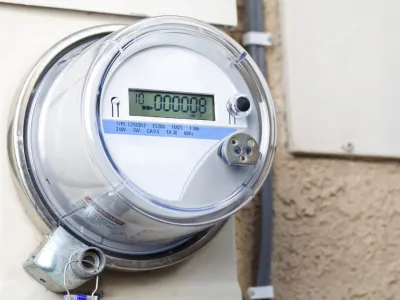CUB recommends the Commission deny CenterPoint’s proposed investment in advanced meters

Published April 5, 2021
CenterPoint Energy has asked Minnesota regulators for permission to begin installing smart meters to serve its residential natural gas customers. However, CenterPoint provided very little justification for charging customers the hefty price of these advanced meters and has not demonstrated that the value to customers will be worth the expense. For that reason, CUB is formally opposing the request.
In May of 2020, the Minnesota Public Utilities Commission (“PUC”) opened a docket (the “Economic Recovery” docket) with the goal of better understanding how regulated utilities can “assist in Minnesota’s economic recovery from the COVID-19 pandemic.” To that end, the PUC required all of Minnesota’s regulated gas and electric utilities to report existing or proposed initiatives that create jobs; utilize businesses owned by women, members of minority racial groups, or veterans; and meet certain other conditions established by the PUC.
CenterPoint filed comments proposing seven potential investments it suggested met the Commission’s criteria. One proposal was to replace all of CenterPoint’s gas meters with upgraded “smart” meters. According to the proposal, CenterPoint estimated it would cost approximately $280 million to replace all of its existing meters with smart meters. If approved, this significant investment would likely be recoverable from CenterPoint’s ratepayers.
More recently, CenterPoint requested that the Commission approve a smaller, $1.5 million investment in smart meters (the “Phase 1” investment) that would precede the full, $280 million “Phase 2” investment. If approved, the Phase 1 investment would allow CenterPoint to begin replacing existing meters that become obsolete or damaged with smart meters and installing smart meters on new properties. In theory, these Phase 1 installations would occur while CenterPoint goes through a more robust regulatory process to seek the Commission’s approval of the full Phase 2 investment.
CUB filed comments opposing the acceleration of the Phase 1 investment. We noted our concern that accelerated approval of Phase 1 based on a very limited record could cause the meters installed in Phase 1 to become stranded assets (i.e., assets that are not fully used by the utility but that ratepayers still have to pay for) if the Commission ultimately decides not to improve the far more significant investment in Phase 2. Further, upon our review of CenterPoint’s filings, we found CenterPoint had not provided nearly enough information about the potential benefits of the smart meters to enable the Commission to weigh those benefits against the costs imposed on ratepayers.
For example, CenterPoint highlighted the smart meters’ ability to improve consumer safety by, among other things, sending real-time signals alerting CenterPoint of potential gas leaks. However, when we asked CenterPoint for more information about this, their responses suggested that the meters would not be able to send these real-time signals unless and until CenterPoint also installs an advanced communication system. The costs of such a system were not included in either of CenterPoint’s $1.5 million Phase 1 or $280 million Phase 2 estimates.
Further, investments in smart meters do not appear to have the positive economic impact the Commission sought to encourage when opening the Economic Recovery Docket. For example, CenterPoint claimed in its petition that the investment could lead to “possible, indirect jobs,” but when we asked for more information, CenterPoint did not identify any new jobs that would be created if its proposed smart meter investments are approved.
Finally, CenterPoint is currently seeking to recover $500 million from its Minnesota customers to account for unexpected costs CenterPoint incurred when buying natural gas at heavily inflated prices in February 2021. If the Commission authorizes CenterPoint to recover this amount from customers, each Minnesota household served by CenterPoint could face an additional $394 in charges spread out over the next two years. CenterPoint filed its advanced meter proposal several months before the February price spike occurred; therefore we, of course, do not blame CenterPoint for not considering the price spike when seeking approval for the smart meter investment. That said, we also find it impossible to ignore the effects of the price spike when evaluating CenterPoint’s proposed investment in smart meters. It is simply too much to ask CenterPoint customers to absorb the costs of the price spike and pay for smart meters that provide uncertain benefits.